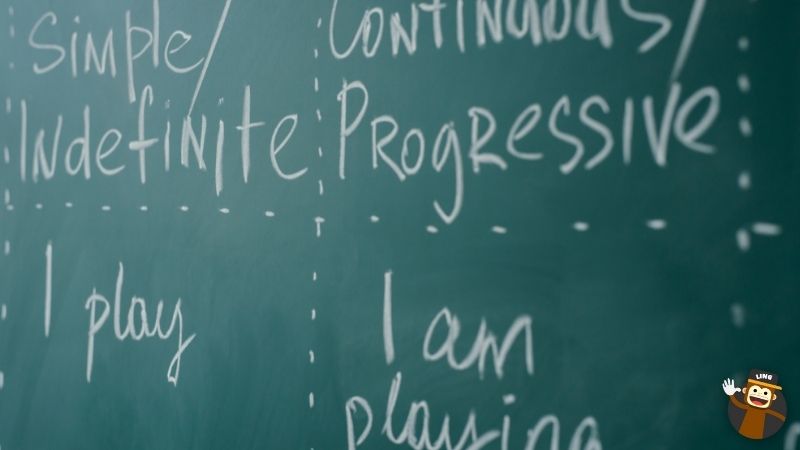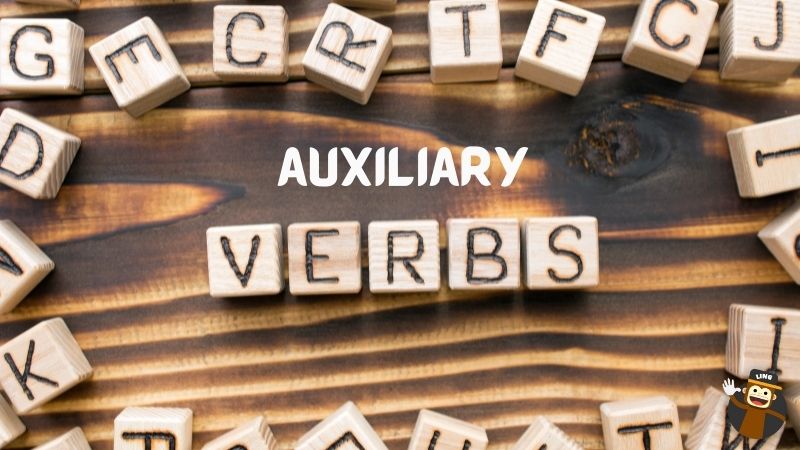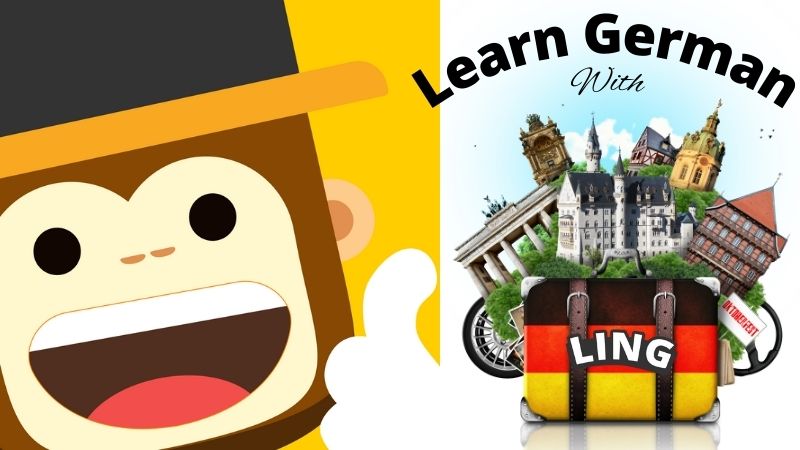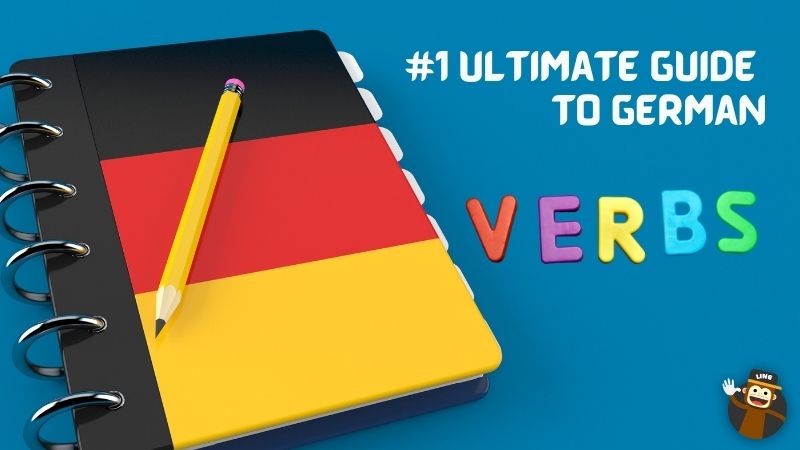Are you ready for a grammar session? To learn German verbs properly, it’s important that you understand German verb conjugation.
Like English and mainly Dutch, the German language conjugates its verbs. Also, similar to the French, Germans also have formal and informal designations for ‘you.’
In this article, you’ll learn about German conjugation, regular and irregular verbs using the most commonly used verbs.
You’ll also learn how to conjugate present, past simple, and future tense verbs. In addition, We’ll include a German verbs list throughout the article.
The conjugation rules aren’t that difficult; all it takes is dedication and memorization to learn. Let’s go!
Why Is It Important To Learn German Verb Conjugation?
Verbs are used in every sentence whether you have a conversation, writing, or reading, so you really must know how to conjugate verbs and recognize them.
Subjects And Pronouns In German

In German sentence structure, pronouns are used to replace nouns in a sentence. Pronouns will affect how a verb is conjugated in German.
There are formal and informal ways to address someone by the pronoun, ‘you,’ which is also often used in conjunction with ‘they.’
| English | German | Singular or Plural |
| I | ich | singular |
| you | du | singular informal |
| you | Sie | singular formal |
| he | er | singular |
| she | sie | singular |
| it | es | singular |
| you | ihr | plural informal |
| you | Sie | plural formal |
| we | wir | plural |
| they | sie | plural |
German Verb Tenses

In total, German has six verb tenses, and they are:
- Simple present
- Perfect
- Simple past
- Past perfect
- Future 1
- Future 2
Interestingly, there are no “continuous” or “progressive” tenses. This means that none of the German action verbs end with -ing.
German Verbs
In addition to six verb tenses, there are also three different classes of verbs. The three types of German verbs are:
- Weak verbs (Regular verbs)
- Strong verbs (irregular verbs)
- Mixed verbs
Within these classes, however, are regular and irregular verbs. This means that regular verbs all follow the same conjugation patterns, while irregular verbs have unique patterns.
German Weak Verbs (Regular Verbs) Simple Present Tense
To use a weak verb (regular verb) requires you to learn a simple trick! The first thing you must do is reduce the verb to its ‘stem.’
When looking at a list of verbs in German, you’ll notice that the verbs in the infinitive verb form all end with -en. Let’s take a look:
| German | English |
| bleiben | to stay/remain |
| finden | to find |
| gehen | to go |
| haben | to have |
| heißen | to be called |
| lassen | to let/allow/have done |
| liegen | to lie/be lying |
| sehen | to see |
| sein | to be |
| sollen | should/ought to |
| stehen | to stand |
| vergleichen | to compare |
| wissen | to know |
| wollen | to want |
You need to remove the -en to return the word to its stem form. Therefore you would get:
finden = find, sehen = seh, wissen = wiss
Once you have reduced the verb to its stem form, all you have to do is follow this pattern of verb conjugation:
Verb To Let (lassen, verb stem lass)
| English | German | Rule |
| I let | ich lasse | (add e) |
| you let | du lassst (informal singular) | (add st) |
| you let | sie lassen (formal singular) | (add en) |
| he lets | er lasst | (add t) |
| she lets | sie lasst | (add t) |
| it lets | es lasst | (add t) |
| you let | ihr lasst (plural informal) | (add t) |
| you let | sie lassen (plural formal) | (add en) |
| we let | wir lassen | (add en) |
| they let | sie lassen | (add en) |
Verb To Lie ( liegen, verb stem lieg)
| English | German | Rule |
| I let | ich liege | (add e) |
| you let | du liegst (informal singular) | (add st) |
| you let | sie liegen (formal singular) | (add en) |
| he lets | er liegt | (add t) |
| she lets | sie liegt | (add t) |
| it lets | es liegt | (add t) |
| you let | ihr liegt (plural informal) | (add t) |
| you let | sie liegen (plural formal) | (add en) |
| we let | wir liegen | (add en) |
| they let | sie liegen | (add en) |
German Weak Verbs (Regular Verbs) Simple Past Tense
The rules of regular German simple past verbs are precisely the same as the simple present regular verb rules.
Here are what simple past regular verb conjugation looks like in German:
Verb To Know (kennen, verb stem kenn)
| English | German | Rule |
| I let | ich kennte | (add te) |
| you let | du kenntest (informal singular) | (add test) |
| you let | sie kennten (formal singular) | (add ten) |
| he lets | er kennte | (add te) |
| she lets | sie kennte | (add te) |
| it lets | es kennte | (add te) |
| you let | ihr kenntet (plural informal) | (add tet) |
| you let | sie kennten (plural formal) | (add ten) |
| we let | wir kennten | (add ten) |
| they let | sie kennten | (add ten) |
Verb to stop (halten, stem halt)
| English | German | Rule |
| I let | ich haltte | (add te) |
| you let | du halttest (informal singular) | (add test) |
| you let | sie haltten (formal singular) | (add ten) |
| he lets | er haltte | (add te) |
| she lets | sie haltte | (add te) |
| it lets | es haltte | (add te) |
| you let | ihr halttet (plural informal) | (add tet) |
| you let | sie haltten (plural formal) | (add ten) |
| we let | wir haltten | (add ten) |
| they let | sie haltten (plural formal) | (add ten) |
Strong Verbs (Irregular Verbs)
About 90% of the verbs in German are regular. However, more than 200 verbs are irregular. Learning the difference will take lots of time and practice, and we suggest that Ling App help you continuously study these verb conjugations, so you don’t forget all these rules!
German auxiliary and modal verbs are mostly irregular so let’s take a look at those.
Common Auxiliary Verbs In German – Present Tense

Verb To Have (haben)
| English | German |
| I have | ich habe |
| You have | du hast |
| You have | sie haben |
| He has | er hat |
| She has | sie hat |
| It has | es hat |
| You have | wir haben |
| We have | ihr habt |
| They have | sie haben |
Verb To Be (sien)
| English | German |
| I am | ich bin |
| You are | du bist |
| You are | sie haben |
| He is | er ist |
| She is | sie ist |
| It is | es ist |
| You are | wir sind |
| We are | ihr seid |
| They are | sie sind |
Verb To Can/Be Able To (önnen)
| English | German |
| I can | ich kann |
| You can | du kannst |
| You can | sie können |
| He can | er kann |
| She can | sie kann |
| It can | es kann |
| We can | wir können |
| You can | ihr könnt |
| They can | sie können |
Verb To Want (wollen)
| English | German |
| I will | ich will |
| You will | du willst |
| You will | sie wollen |
| He will | er will |
| She will | sie will |
| It will | es will |
| We will | wir wollen |
| You will | ihr wollt |
| They will | sie wollen |
Verb To Know (wissen)
| English | German |
| I know | ich weiß |
| You know | du weißt |
| You know | sie wissen |
| He knows | er weiß |
| She knows | sie weiß |
| It knows | es weiß |
| We know | wir wissen |
| You know | ihr wisst |
| They know | sie wissen |
Irregular Verbs In German – Past Tense
Thankfully there is a much clearer and easier to memorize pattern with German past tense auxiliary verbs.
There are easier rules to follow, and the spelling of the stem word doesn’t change, except for the verb to be.
Verb To Have (haben)
- ich hatte (I had)
- du hattest (You had)
- er hatte (He had)
- sie hatte (She had)
- es hatte (It had)
- wir hatten (We had)
- ihr hattet You had)
- sie hatten (They had)
Verb To Be (sien)
- ich war (I was)
- du warst (You were)
- er war (He was)
- sie war (She was)
- es war (It was)
- wir waren (We were)
- ihr waret (You were)
- sie swaren (They were)
Verb To Can/Be Able To (önnen)
- ich könnte (I could)
- du könntest (You could)
- er könnte (He could)
- sie könnte (She could)
- es könnte (It could)
- wir könnten (We could)
- ihr könntet (You could)
- sie könnten (They could)
Verb To Want (wollen)
- ich wollte (I wanted)
- du wolltest (You wanted)
- er wollte (He wanted)
- sie wollte (She wanted)
- es wollte (It wanted)
- wir wollten (We wanted)
- ihr wolltet (You wanted)
- sie wollten (They wanted)
Verb To Know (wissen)
- ich wusste (I knew)
- du wusstest (You knew)
- er wusste (He knew)
- sie wusste (She knew)
- es wusste (It knew)
- wir wussten (We knew)
- ihr wusstet (You knew)
- sie wussten (They knew)
Future Tense 1 In German

To talk about something in the future, just like in English, Germans use the verb ‘will.’ The sentence structure for future1 tense in German is:
Subject + verb to will + infinitive verb
The verb to will (werden, stem verb werd)
| English | German |
| I will | Ich werde |
| You will | du wirst (informal) |
| You will | sie zult (formal) |
| He will | er wird |
| She will | sie wird |
| It will | es wird |
| We will | wir werden |
| You will | ihr werdet (plural) |
| They will | sie werden |
These are two examples:
- wir werden sehen (We will watch)
- Ich werde schreiben (I will write)
Future Tense 2 In German
This is essentially future perfect when an event is expected to have been completed by the time it happens in the future.
The sentence structure looks like this:
verb to will + past tense verb + unconjugated verb to have or verb to be
Here are some examples:
- In zwei Wochen werden wir die Prüfungen geschrieben haben (In two weeks we will have written the tests)
- Heute in einem Jahr werden wir schon unseren Urlaub in Australien verbracht haben. (A year from today we will already have had our vacation in Australia)
Here’s A List Of Some Other Most Common German Verbs
| German | English |
| arbeiten | to work |
| beginnen | to begin |
| bekommen | to get/receive |
| bestehen | to exist |
| brauchen | to need |
| entsprechen | to correspond |
| erklären | to explain |
| erzählen | to narrate/tell |
| fallen | to fall |
| folgen | to follow |
| gehören | to belong |
| laufen | to run |
| lernen | to learn |
| müssen | must/to have to |
| sagen | to say |
| scheinen | to shine |
| schreiben | to write |
| setzen | to set/put/place |
| sitzen | to sit |
| verstehen | to understand |
| versuchen | to try/attempt |
| ziehen | to pull/move |
You Made It To The End!
This article certainly had a lot to learn about important German and common German verbs and all their different verb tenses.
The German language is incredibly similar to Dutch, and actually, it’s not very different from English due to the grammar rules.
Still, we know this was a lot to take in, and learning a new language is better done in pieces with dedicated practice.

That’s why we recommend Ling App to help you become a master of German verbs! Our mascot Ling will be with you daily to remind you to practice your German and encourage you along the way.
Ling is free to try and offers over 60 other languages to learn right at your fingertips if you find that German just isn’t the right fit for you.
Go ahead! Try it now.
Download Ling today and start speaking confidently in German!



































































